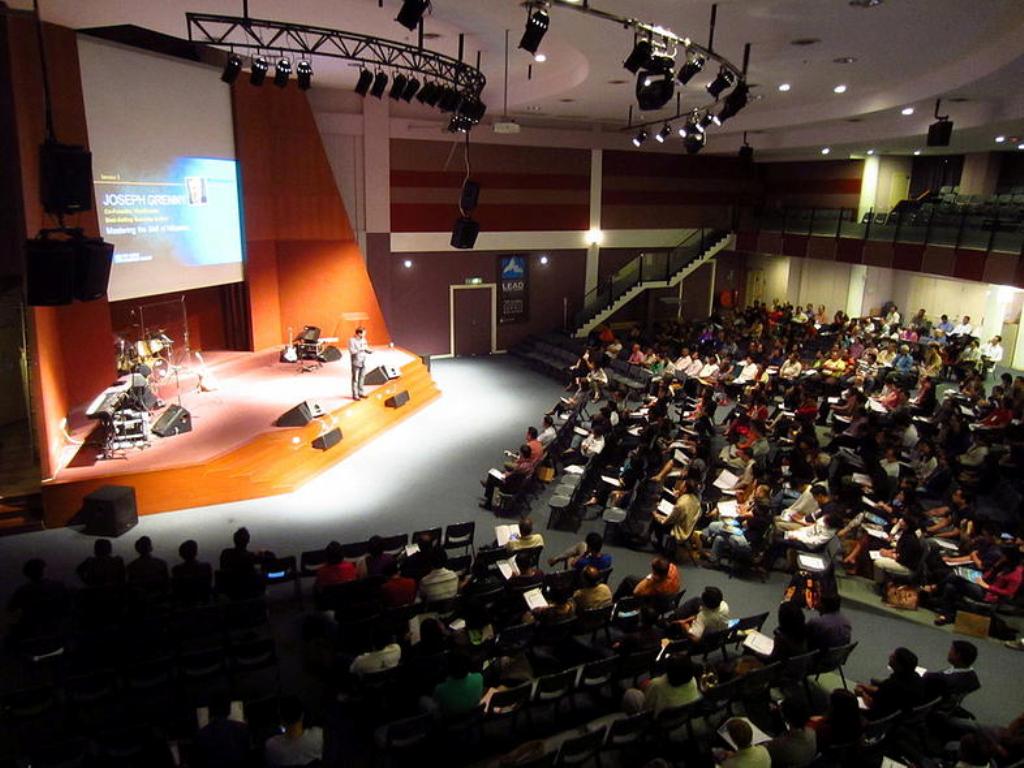
Being a leader might be something that most of us deem elusive – something reserved for the brave, bold and beautiful among us. A series of talks at this year’s Global Leadership Summit, however, convinced one first-time attendee that is far from the truth.

When you think of the word ‘leader’, what kind of person do you conjure up in your head?
For me, I thought of leaders as people who have defined leadership roles in life: the pastor, the manager, the youth leader who’s followed around by a gaggle of teenagers. I also tend to think of leaders in terms of personality adjectives: outspoken, charismatic, unafraid – traits that I don’t usually associate with, well, me.


My perception of what makes a leader, though, was challenged thoroughly when my dad signed me up to attend the livestream of the Global Leadership Summit at Agape Community Church, Seremban, last October.
Organized by Willow Creek Community Church in the U.S, the summit delivers leadership insights from pastors, marketplace leaders, and passionate citizens who fight for worthy causes.
The call to leadership
Willow Creek’s lead pastor, Bill Hybels, regales an incident from his childhood where, bored in class, he led his classmates to bang their desk lids in unison. His teacher detained him for recess – but not before telling him: ‘I see leadership potential in you, but you need to use it for good.” This unassuming comment ultimately led him to consider and model leadership for the rest of his career.

Bill referred to that moment as one where a ‘seed’ of leadership was planted – and this motif became a recurring one throughout this year’s GLS. Sam Adeyemi of Nigeria’s Daystar Christian Center spoke about how changing the way people see themselves is the hard work of leadership, while Facebook COO Sheryl Sandberg explained how we can’t become leaders unless we see ourselves as leaders – and have a community of people that affirms our leadership skills.
The speakers encouraged each one of us to notice and call out leadership potential in those around us. Andy Stanley, pastor of North Point Ministries, suggested that we do so by being a student and not a critic. By adopting a posture of continuous learning, we have the opportunity to listen and affirm some new ideas – which can then be developed to solve real-world situations.


Building leadership muscles
As much as leaders are driven by missions and dreams, leadership is a collection of skills which require deliberate practice to achieve. In this GLS, speakers spoke about developing qualities such as creative confidence, grit, and the need for ‘white space’ at work.
Creativity might be a much-heralded buzzword in leadership, but it is often misunderstood as a state: you’re either creative or you’re not. However, this definition is limiting. According to author Fredrik Haren, creative confidence ca be developed by actively combining known ideas – that ultimately come from a God who creates – in new ways.


Grit is another trait that leaders need to succeed in the long run. Defined as the combination of passion with perseverance, psychologist Angela Duckworth talked about how grit fuels life-long mastery. She also shared about the importance of deliberate, focused practice in stretching leaders beyond their comfort zone to sustain their passions over time.
Leaders also need to consciously take breaks. Juliet Funt, the daughter of Candid Camera’s Allan Funt, spoke about how overwork is often caused by positive traits like drive, knowledge, information and excellence taken to the extreme. To counter overwork, leaders need to schedule strategic pauses or ‘white spaces’ into their day to make it more purposeful and balanced.

Fighting the good fight
Sometimes, even with the right heart and hard work, it’s hard to feel like a real leader. The speakers at GLS 2017 shared about how ineffectiveness in leadership can be caused by obstacles such as bitterness, discomfort and doubt -and how they can be overcome.
If there was a GLS 2017 speaker whose anger towards injustice can be justified, it would be Immaculee Ilibagiza. A survivor of the 1994 Rwandan genocide, Immaculee’s entire family was killed while she hid in a tiny bathroom with 7 other women for 90 days. However,it was during those dark days that she learned to rely on God – and forgive the countrymen that killed her family.

On the other side of injustice is lawyer Bryan Stevenson, who spends his entire career helping vulnerable groups in society such as child inmates. He shared about how facing weakness and vulnerablity is often uncomfortable and painful. This discomfort is normal, and leaders need to get close and fight hopelessness to push through.
Fear is another common struggle that people who want to lead face – and it was the struggle that resonated with me the most. In the face of violent retaliation and crime, Gary Haugen, founder of International Justice Mission, encouraged us to remember God’s perfect love,ruthlessly inventory our fears, and find courage in community.


Armed to lead
This year’s GLS thought me that leadership is something that can be actively developed, as well as something that can we can actively encourage in the lives of those around us. Leadership is then, in a way, an important part of going forth and making disciples – something the Lord calls upon all of us to do. Talks like GLS which help equip Christians to be leaders should be held more often to build the body of Christ.

|Share The Good News|
NOTE: Most of the pictures were taken from the GLS Malaysia’s Facebook page at https://www.facebook.com/glsmalaysia/ and is solely meant for the highlighting of this annual event. For more information, you may visit GLS Malaysia’s website at http://www.glsmalaysia.org/




Leave a Reply